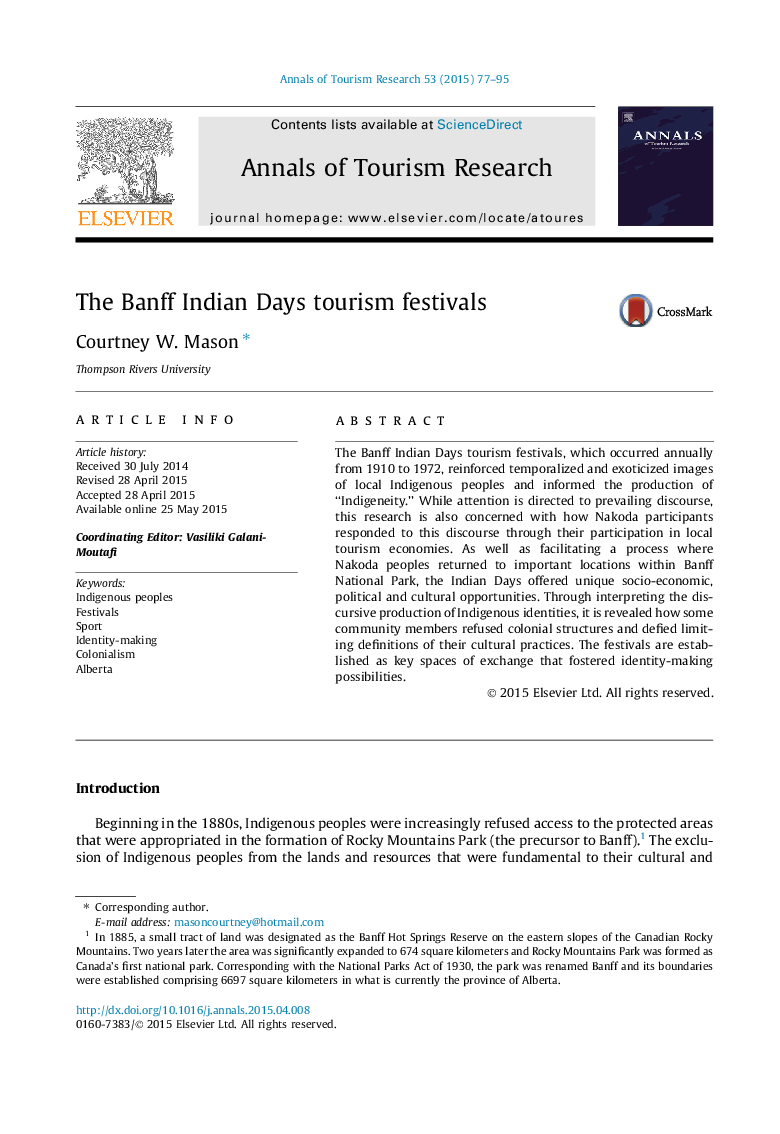| Article ID | Journal | Published Year | Pages | File Type |
|---|---|---|---|---|
| 1007001 | Annals of Tourism Research | 2015 | 19 Pages |
•Understanding Indigenous experiences of the Rocky Mountains through oral histories.•Use of Foucault to interpret acting power relations in colonial contexts.•Cultural representations of Indigenous peoples through the tourism industry.•Tourism festivals as unique socio-political opportunities for Nakoda peoples.•Refusals of colonial structures and limiting definitions of Indigenous cultures.
The Banff Indian Days tourism festivals, which occurred annually from 1910 to 1972, reinforced temporalized and exoticized images of local Indigenous peoples and informed the production of “Indigeneity.” While attention is directed to prevailing discourse, this research is also concerned with how Nakoda participants responded to this discourse through their participation in local tourism economies. As well as facilitating a process where Nakoda peoples returned to important locations within Banff National Park, the Indian Days offered unique socio-economic, political and cultural opportunities. Through interpreting the discursive production of Indigenous identities, it is revealed how some community members refused colonial structures and defied limiting definitions of their cultural practices. The festivals are established as key spaces of exchange that fostered identity-making possibilities.
